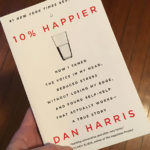I have one rule about writing and it’s this: don’t write about how hard it is to write. I am about to break this rule.
Writing is Hard
There, I said it. But I don’t want to say it again. If I allowed myself to write about how hard it is to write, that’s pretty much all I would write about. Every time I would sit down to write I would stare at the blank page and just start typing about how I have nothing to say right now.
Writing to me feels like building a sand castle without any water and you have to create your own sand first. Or perhaps it’s more like the old anecdote of James Joyce in utter despair over having only managed seven words on a particular day. A friend says, “well, that’s not bad for you.” To which he replies, “yes but I don’t know what order they go in.”
Writing about how hard it is to write bothers me for another reason: it’s a plea to the reader. “If you don’t like what you’re reading, take it easy on me, this is hard!” Well, you should be prepared to fail. Be prepared to have people not like what you’ve written.
Actually, that’s not it. The opposite of praise is not vitriol. It’s indifference. I once asked a friend if he liked a story I wrote. I shouldn’t have put him on the spot but I’ll never forget his response. He looked at me, paused, smiled, and said, “you know what? As long as you enjoy writing…” When someone screams, “you suck!” it’s not about you. But when someone visibly doesn’t want to hurt your feelings, it says as much without saying it.
When I don’t have a positive response to something that I’ve written as soon as possible, I have to curb the urge to get into the fetal position and sleep for three days straight. It makes me feel as vulnerable as if I just accidentally replied all to a company wide email with a dick pic. It stings. It sucks. But that’s the bargain. And when something you write sucks, you get to move past it and write something else.
And it’s going to be just as hard to start that next thing as it was to start this one.
Fear
All blocks to creative work are based in fear. Look at the gap in entries on this blog. From June 26th to October 7th, what was I doing? I’m not sure but I do know this: I sure as hell wasn’t writing. I was afraid and writing is hard. (I said it again and didn’t want to.) I was afraid of not being perfect. I was afraid that the no talent police would show up at my door and tell me to never write another word again. I was afraid of sharing something too embarrassing. Or perhaps I would reveal something awful about myself – some racist opinion that i didn’t even know that I had – and my writing would go viral and I would be shamed forever. Word would spread of my lack of talent to the point where strangers would stare at me on the street, mouths agape, and I would eventually go live in the woods. “Did you hear about Rob Penty?” “No, what happened?” “Well, his blog was so mediocre that he’s become a hermit. And good riddance, if you ask me.”
But, frankly, I’m not that important. The conversation would more probably go more like this: “Did you hear about Rob Penty?” “Who the fuck is Rob Penty?”
This brings me to my next point.
Something to Say
It annoys me when people say that they write because they have something to say. If you think people do need to hear what you have to say, I want you to go into a mirror, look into it and say the following, “I am not that important.”
I’m not being falsely modest when I say that no one needs to hear what I have to say. I want them to hear it but they don’t need to. Perhaps I’m splitting hairs but I think it’s a valid point.
I write for myself to clarify my own thoughts about things and then my ego kicks in and I share it. You don’t need to hear what I have to say, I just want to show it to you and I hope that you enjoy it and get something out of it, some catharsis, some recognition of a common experience or point of view. This isn’t to say that I want to preach to the choir but I won’t flatter myself to think that my writing can instruct. I tend to return to think of the W.H. Auden quote:
Someone says: “Whom do you write for?” I reply: “Do you read me?” If they say, “Yes,” I say, “Do you like it?” If they say, “No,” then I say, “I don’t write for you.”
I have an audience in mind, I suppose, but it’s just anyone with whom I might have an enjoyable conversation.
I feel better after I’ve made something. Publishing a blog post feels good to me. Accumulating several blog posts feels good to me. Pushing through the “this is crap” phase of writing to find something I like or looking back at an old post and thinking, “huh, that’s not so bad,” that’s enough.
And No One Is That Gifted
Ironically it’s television and movies that perpetuate the myth of the writer genius. Television shows like Californication and movies like Finding Forrester and Winter Passing (and other stuff people have actually seen) show the tortured writer who merely has to get past all of the emotional pain, alcoholism, and soul killing commercialism to turn on the faucet that is his (and it’s usually his) creative genius to gift the world with just one more piece of brilliant writing.
But even Kerouac set a daily word count.
Ta-Nehisi Coates,who just won the National Book Award for Non-fiction, said that writing is like having “a certain music in your head, and trying to get that music out on the page is absolute hell.” You go from bad to okay to acceptable, hopefully seventy percent of what you heard in your head.
We’re always striving for something amazing but that ideal gets in the way of writing. My writing isn’t great. My writing is finished. That’s enough.
And it was hard to write it.
(Last time, I promise.)




